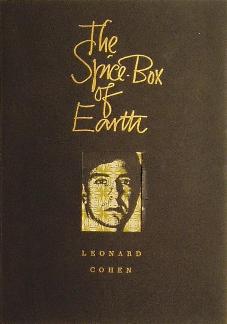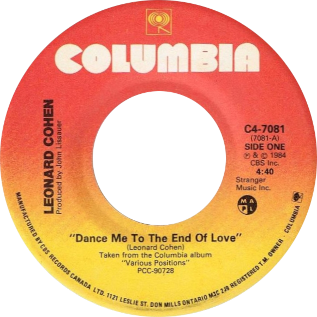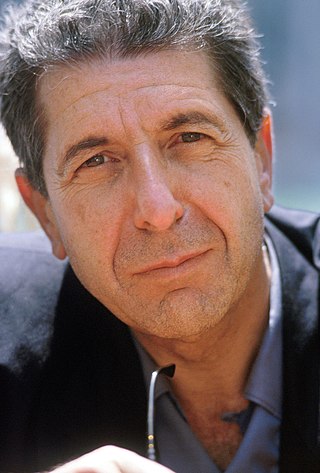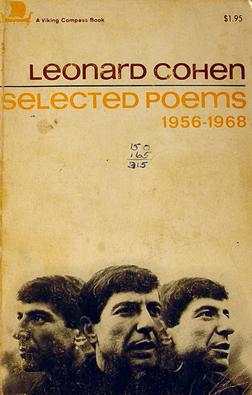
Irving Peter Layton, OC was a Romanian-born Canadian poet. He was known for his "tell it like it is" style which won him a wide following, but also made him enemies. As T. Jacobs notes in his biography (2001), Layton fought Puritanism throughout his life:
Layton's work had provided the bolt of lightning that was needed to split open the thin skin of conservatism and complacency in the poetry scene of the preceding century, allowing modern poetry to expose previously unseen richness and depth.
Robert Sward was an American and Canadian poet and novelist.
Reductio ad Hitlerum, also known as playing the Nazi card, is an attempt to invalidate someone else's argument on the basis that the same idea was promoted or practised by Adolf Hitler or the Nazi Party. Arguments can be termed reductio ad Hitlerum if they are fallacious. Contrarily, straightforward arguments critiquing specifically fascist components of Nazism like Führerprinzip are not part of the association fallacy.
Francis Reginald Scott (1899–1985), commonly known as Frank Scott or F. R. Scott, was a lawyer, Canadian poet, intellectual, and constitutional scholar. He helped found the first Canadian social democratic party, the Co-operative Commonwealth Federation, and its successor, the New Democratic Party. He won Canada's top literary prize, the Governor General's Award, twice, once for poetry and once for non-fiction. He was married to artist Marian Dale Scott.

Beautiful Losers is the second and final novel by Canadian writer and musician Leonard Cohen. It was published in 1966, before he began his career as a singer-songwriter.

The Spice-Box of Earth is Canadian poet and songwriter Leonard Cohen's second collection of poetry. It was first published in 1961 by McClelland and Stewart, when Cohen was 27 years old. The book brought the poet a measure of early literary acclaim. One of Cohen's biographers, Ira Nadel, stated that "reaction to the finished book was enthusiastic and admiring.. .[noting that] the critic Robert Weaver found it powerful and declared that Cohen was 'probably the best young poet in English Canada right now.'"
Louis Dudek, was a Canadian poet, academic, and publisher known for his role in defining Modernism in poetry, and for his literary criticism. He was the author of over two dozen books. In A Digital History of Canadian Poetry, writer Heather Prycz said that "As a critic, teacher and theoretician, Dudek influenced the teaching of Canadian poetry in most [Canadian] schools and universities".
Arthur James Marshall Smith was a Canadian poet and anthologist. He "was a prominent member of a group of Montreal poets" – the Montreal Group, which included Leon Edel, Leo Kennedy, A. M. Klein, and F. R. Scott — "who distinguished themselves by their modernism in a culture still rigidly rooted in Victorianism."

Abraham Moses Klein was a Canadian poet, journalist, novelist, short story writer and lawyer. He has been called "one of Canada's greatest poets and a leading figure in Jewish-Canadian culture."
Nationality words link to articles with information on the nation's poetry or literature.

Amiri Baraka, previously known as LeRoi Jones and Imamu Amear Baraka, was an American writer of poetry, drama, fiction, essays and music criticism. He was the author of numerous books of poetry and taught at several universities, including the University at Buffalo and Stony Brook University. He received the PEN/Beyond Margins Award in 2008 for Tales of the Out and the Gone. Baraka's plays, poetry, and essays have been described by scholars as constituting defining texts for African-American culture.

"Dance Me to the End of Love" is a 1984 song by Canadian singer Leonard Cohen. It was first performed by Cohen on his 1984 album Various Positions. It has been recorded by various artists and in 2009 was described as "trembling on the brink of becoming a standard."

The Portage to San Cristobal of A.H. is a 1981 literary and philosophical novella by George Steiner. The story is about Jewish Nazi hunters who find a fictional Adolf Hitler (A.H.) alive in the Amazon jungle thirty years after the end of World War II. The book was controversial, particularly among reviewers and Jewish scholars, because the author allows Hitler to defend himself when he is put on trial in the jungle by his captors. There Hitler maintains that Israel owes its existence to the Holocaust and that he is the "benefactor of the Jews".

Leonard Norman Cohen was a Canadian singer-songwriter, poet, and novelist. Themes commonly explored throughout his work include faith and mortality, isolation and depression, betrayal and redemption, social and political conflict, and sexual and romantic love, desire, regret, and loss. He was inducted into the Canadian Music Hall of Fame, the Canadian Songwriters Hall of Fame, and the Rock and Roll Hall of Fame. He was invested as a Companion of the Order of Canada, the nation's highest civilian honour. In 2011, he received one of the Prince of Asturias Awards for literature and the ninth Glenn Gould Prize.
Ladies and Gentlemen... Mr. Leonard Cohen is a 1965 National Film Board of Canada documentary about Leonard Cohen, co-directed by Don Owen and Donald Brittain, written by Brittain and produced by John Kemeny.

William Alfred Hawkins was a Canadian songwriter, poet, musician and journalist, most notable for his contributions in the 1960s to Canadian folk rock music and to Canadian poetry. His best known song is "Gnostic Serenade", originally recorded by 3's a Crowd.
Chantal Ringuet is a Canadian scholar, award-winning author and translator.

Book of Mercy is a poetry book by Canadian author, poet and singer-songwriter Leonard Cohen, published by McClelland and Stewart, and repackaged in March 2010. Its original publication was in 1984. Book of Mercy is considered a companion volume to Cohen's poetry collection, Book of Longing. The book is often referred to as a book of contemporary psalms. The poems are numbered rather than titled. Book of Mercy contains fifty poems. The topics are often spiritual or religious in nature.

Selected Poems 1956–1968 is Leonard Cohen's fifth collection of poetry, first published in 1968 by McClelland & Stewart in Canada, and his first book to be published after his debut as a recording artist in December 1967. It was also the first of Cohen's poetry books to be published in the US, and offered twenty new poems along with a selection from earlier volumes. Many were hand-picked by Cohen's long-time girlfriend Marianne Ihlen. Published in June, the work sold 20,000 copies over the summer.
The Flame is a posthumous poetry collection by Canadian author and singer-songwriter Leonard Cohen, published in 2018. It was edited by Robert Faggen and Alexandra Pleshoyano, with a foreword by Cohen's son Adam Cohen.











